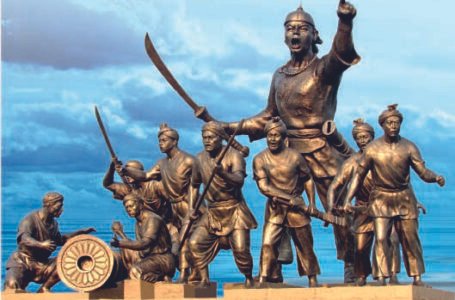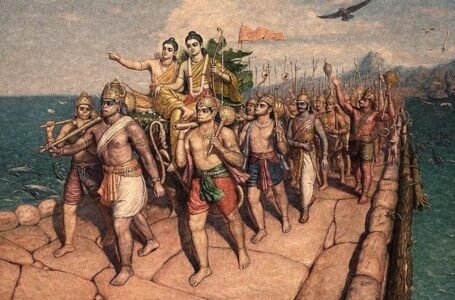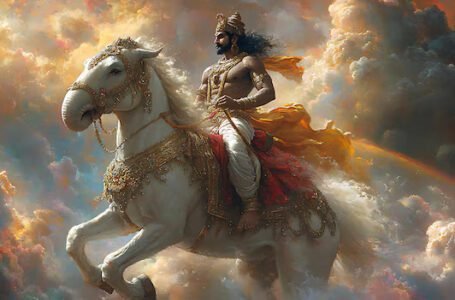PrideOfied – Shikhandi first Transgender Warrior
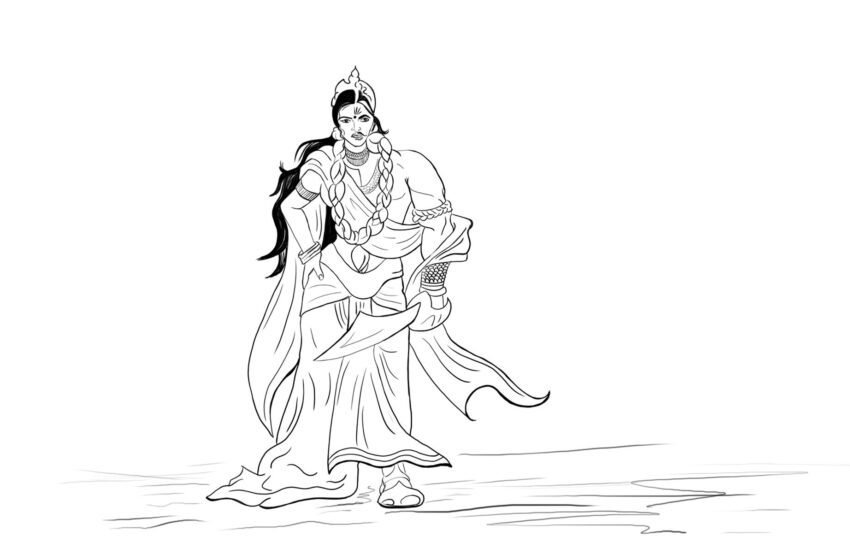
Let’s dive into the story of the first Trans warrior Shikhandi. Shikhandi is the major character of Mahabharat. Shikhandi is one such powerful character depicting the two sides of a gender with morality.
In some ways, Hindu philosophy is straightforward. Every person is a manifestation of the eternal atman (spirit or soul). Because every atman is unique from the body — including its extended traits such as color, gender, and sexual orientation — they all come from the same Divine source and are thus members of the same spiritual family, deserving of love, respect, and equitable treatment. Morality, on the other hand, is a complicated subject, and some of Hinduism’s most illustrious figures have battled with its complexities. Though all religious moral codes are intended to lead to the ultimate goal of unconditional love and acceptance, India’s great epics have innumerable examples of well-intentioned people who have missed this goal in their zeal to carefully follow the “rules.”
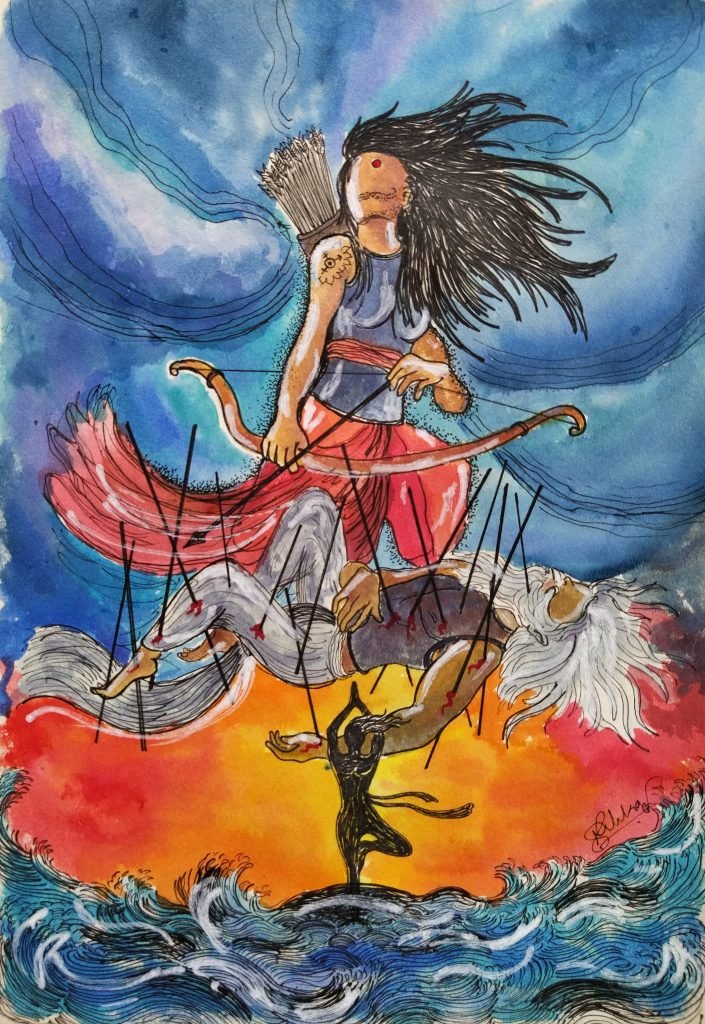
Perhaps the most famous example is Bhishma’s treatment of Amba, a princess who later became the transgendered Shikhandi, which eventually led to his death. Bhishma and Amba’s story, as told in the Hindu sacred epic Mahabharata, began when Bhishma took a vow of chastity and gave up his right to rule the Kuru dynasty so that his father may marry the woman he loved. As a result, Vichitravirya, Bhishma’s younger half-brother, inherited the throne instead. Bhishma began looking for various suitable wives for his brother as soon as Vichitravirya reached marriageable age. The king of Kashi happened to have three daughters named Amba, Ambika, and Ambalika who were ready to marry. Bhishma arrived at their swayamvara ceremony (a ritual where princes compete for a bride), fought off all other potential suitors, and carried the three princesses back to Hastinapura (the Kuru capital) to marry Vichitravirya in a tumultuous turn of events.
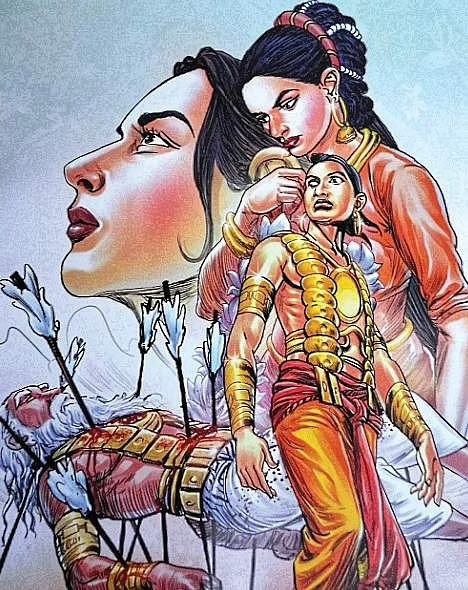
The Kuru dynasty was extremely prominent, thus Ambika and Ambalika, the two younger sisters, were ecstatic to marry Vichitravirya. Amba, on the other hand, had a different opinion. She explained to Bhishma that she and Shalva had already dedicated their hearts to each other and that the swayamvara had been pre-arranged for his victory. Bhishma arranged for Amba to be brought to Shalva’s realm instead of marrying him after much thought. Amba, on the other hand, did not receive the warm welcome she had hoped for when she arrived at Shalva’s palace. Shalva was adamant about not having anything to do with her. Bhishma insulted him, and he refused to accept “charity” from him as a proud warrior. Despite her begging and pleadings, he refused to budge. Amba eventually gave up and returned to Hastinapura, where she told Bhishma about what had happened with Shalva and how she had no alternative but to marry Vichitravirya. To Amba’s surprise, Bhishma replied that marrying Vichitravirya was no longer an option because she had already pledged her heart to another. She proposed Bhishma marry her after quickly realizing she was out of options. After all, it was he who put Amba in this situation by abducting her. Bhishma, on the other hand, was adamant that he couldn’t and wouldn’t break his celibacy vow. Amba was advised to return to her family after being found unmarriable.
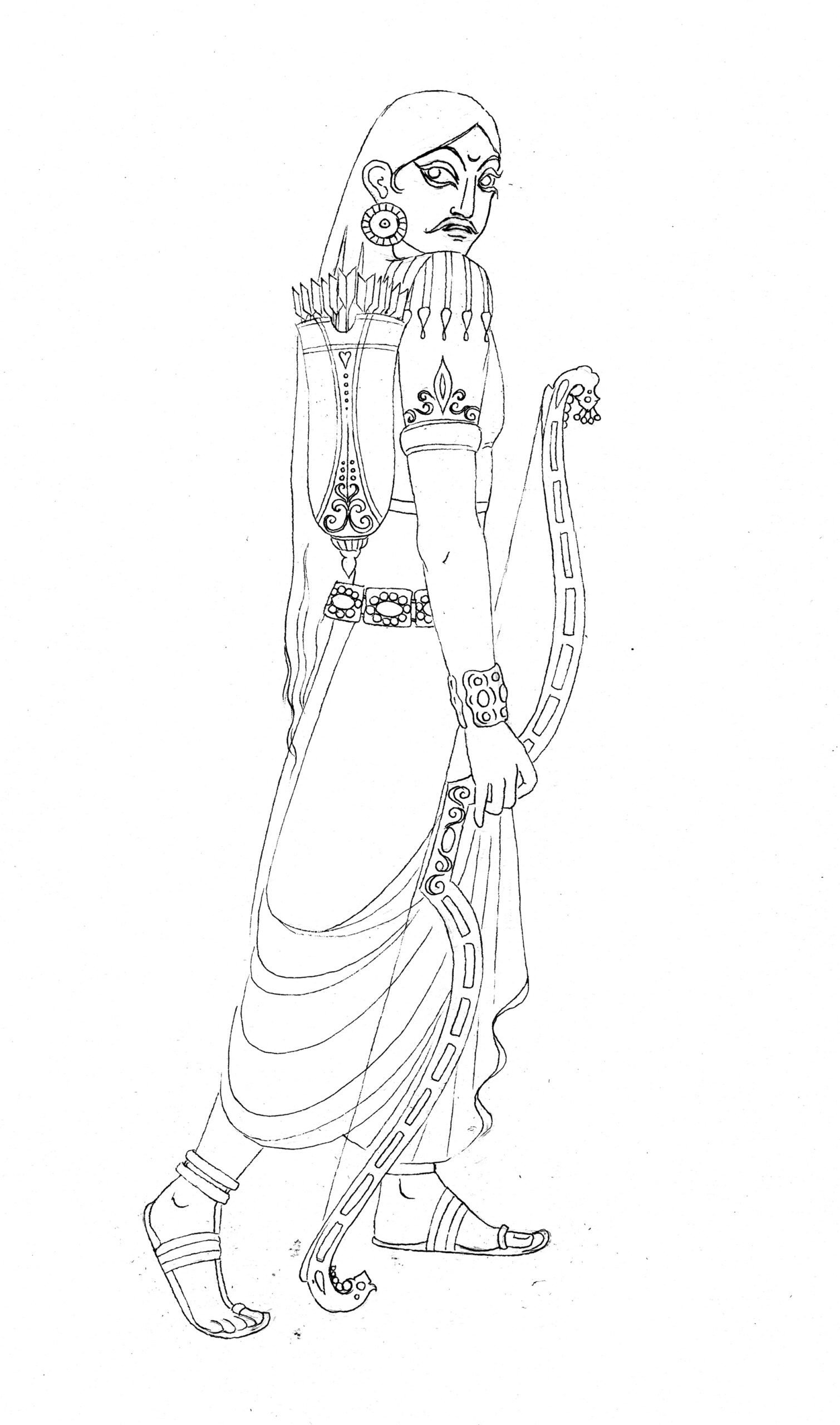
To grasp Bhishma’s logic, keep in mind that Vedic civilization was an oral society in which things were not routinely written down, hence there were no documented transactions binding people to their word like there are now. As a result, a person’s word — especially a pledge — had moral and legal ramifications, and influenced how society assessed one’s honor, integrity, and social standing. On the other hand, Bhishma was uncompromising in his adherence to society’s rules of law and would do so regardless of the repercussions. Amba had done nothing wrong and acted solely out of love, but she was discarded as damaged goods despite being honest, sincere, and acting only out of love. She was furious at both men, but she concluded that Bhishma was the ultimate cause of her destroyed future when she reflected on everything that had happened. She would have been a happily married queen if he hadn’t snatched her.
So, rather than returning to her family’s house, she went into the woods and began practicing rigorous penances in order to gain the power she required for vengeance. She eventually won the god Shiva’s favor and asked him to grant her the capacity to murder Bhishma. Shiva granted Amba’s wish, telling her that she would play a role in Bhishma’s death in her next life. Amba killed herself right away, determined to achieve her aim as soon as possible. The next section of the story is told in several different ways.
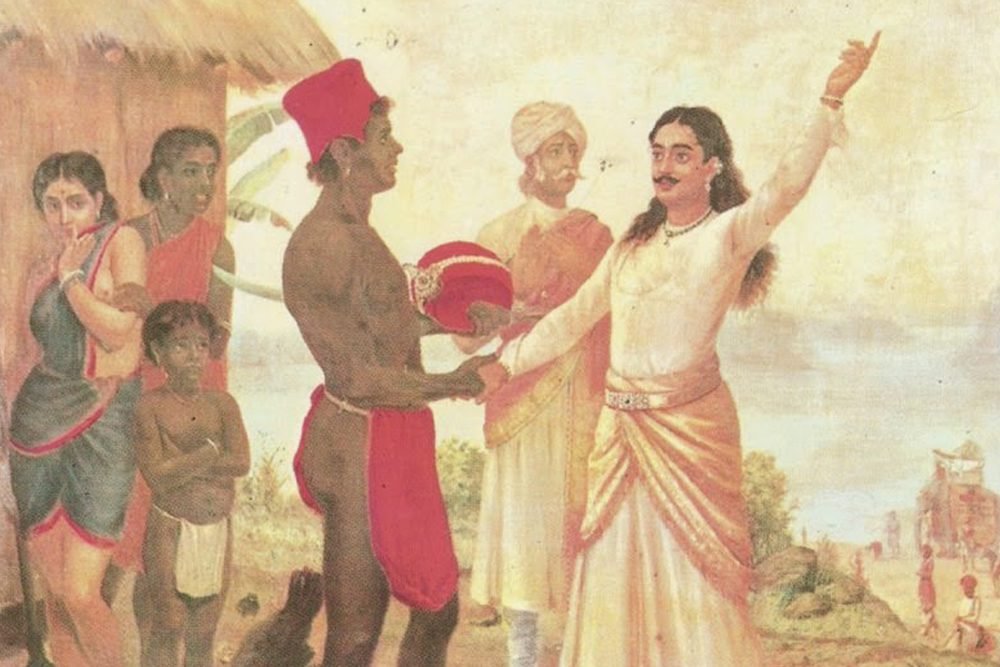
According to some legends, Amba was born to King Drupada as a daughter. Drupada calls her Shikhandi and raises her as a boy when Shiva tells him she will be changed into a man. In this tale, she gets transformed into a man by a powerful entity that lives in the jungle. According to some tales, Shikhandi is born a male but becomes transgender as a result of Shiva bestowing the capacity to remember her former lives on her. In any case, Shikhandi gets his chance to be the cause of Bhishma’s death near the end of the Mahabharata during the Kurukshetra war, as Shiva prophesied, and the question of his gender plays a key role. The 18-day Kurukshetra battle is the Mahabharata’s finale, and it revolves around a power struggle between two sets of cousins known as the Pandavas and the Kauravas. Though Bhishma understood the Pandavas were extremely religious and that the world would be a better place with them as rulers, he was politically bound to the Kauravas and hence felt compelled by morality to fight against the same people he wanted to fight for. He knew that no one would be able to overcome him in combat, even if he wanted the Pandavas to prevail. The Pandavas realized this, too, and approached Bhishma on the eve of the war’s ninth night — fighting would cease every nightfall and restart the next day — and asked him how they could ever beat him. Taking advantage of the situation, Bhishma claimed that as a warrior, he would never fight a lady under any circumstances.
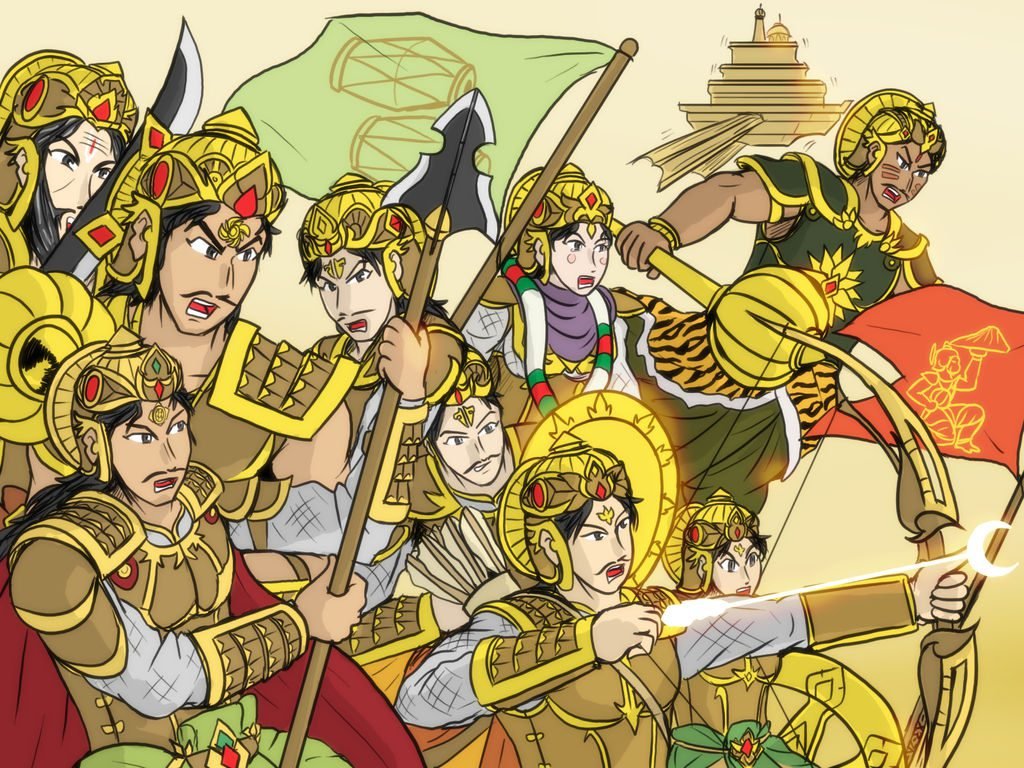
Knowing Shikhandi’s previous existence as Amba, the Pandavas launched an attack on Bhishma the next day, with Shikhandi leading the charge, closely followed by Arjuna, the Pandavas’ most talented fighter. Bhishma became defenseless due to his refusal to fight Shikhandi, allowing Arjuna to kill him with a volley of arrows.
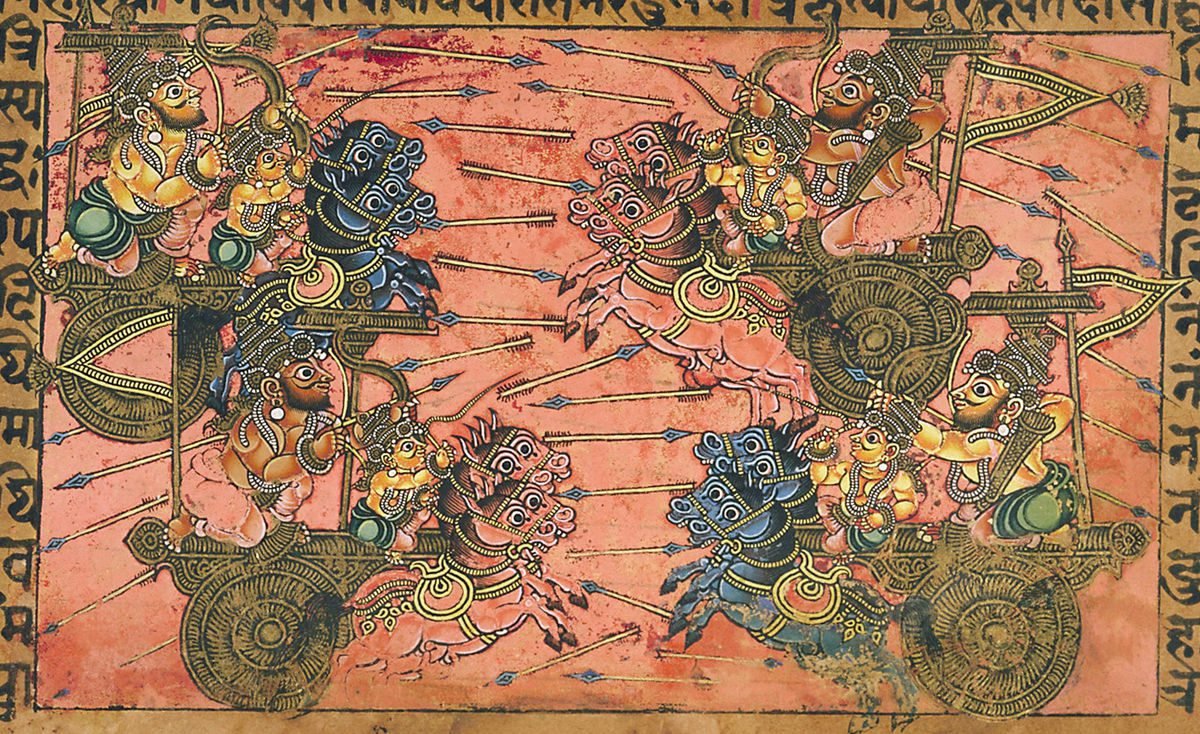
The Pandavas went on to win the war after defeating Bhishma, the commander of the Kuru army. Shikhandi, whose gender was never an issue in society, became known as a key character who was instrumental in defeating the Kauravas. Many people nowadays discriminate against persons like Shikhandi. On the other hand, emphasizes the promotion of love and respect based on soul equality, regardless of a person’s gender, ethnicity, or sexual orientation. As a result, Hinduism has a history that includes all kinds of individuals and the important parts they’ve played in India’s most beloved religious legends.
